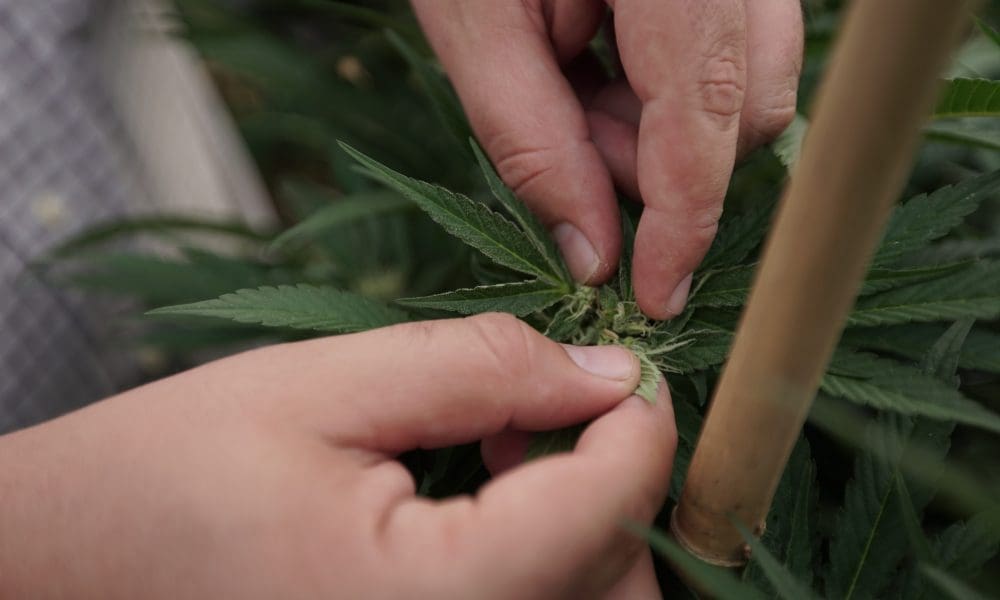Hawaii’s governor has signed into law a bill to expand the rights of medical marijuana caregivers, allowing them to grow cannabis on behalf of up to five qualified patients rather than the current one, among other changes.
Gov. Josh Green (D) formally signed SB 1429 into law earlier this month. The purpose of the legislation, according to its introductory section, is to “maintain and clarify the multiple options currently available for qualifying patients to access a safe and legal supply of medical cannabis,” including from primary caregivers.
In addition to increasing the limit on how many patients a caregiver can cultivate cannabis for, the new law also extends a state allowance for caregivers to cultivate marijuana for patients in the first place—a right that technically expired at the beginning of this year after lawmakers failed to amend a sunset date in prior legislation.
The governor signed an executive order in late December that has since protected caregivers from “undue enforcement” as the legislature worked to hammer out the policy fix.
Only 55 percent of patients in a 2022 survey said they exclusively obtained medical marijuana at licensed dispensaries, the newly enacted measure notes. “This means that up to forty-five per cent of patients obtain their cannabis for medical use from other sources, including cultivation.”
Patients, it continues, “should continue to have multiple options for obtaining medical cannabis, including having a primary caregiver grow an adequate supply of cannabis for medical use on their behalf.”
Violations of the new caregiver law would be subject to a fine of “not more than $5,000 for each separate violation,” which would be imposed by the state Department of Health.
Lawmakers transmitted the bill to the governor earlier this month along with separate cannabis-related legislation, including a proposal to allow people to enroll as medical marijuana patients for any health condition their treating clinician believes that cannabis would benefit.
That measure, HB 302, would also allow patients to receive recommend medical cannabis recommendations through telehealth visits rather than having to establish an in-person relationship with a provider.
Separately this month, a bill to support research into psychedelic-assisted therapies that had passed both chambers of Hawaii’s legislature in different forms missed a legislative deadline and subsequently died for the session.
SB 1042, from Sen. Chris Lee (D), was scheduled for a conference committee meeting—with lawmakers from both legislative chambers set to hammer out differences between versions of the bill passed by the House and Senate—but “Unfortunately, we ran out of time was the bottom line,” Lee told Marijuana Moment at the time.
While the proposal won’t move forward this year, the senator said the conversation this session will set the stage for a renewed effort in 2026.
Lawmakers also recently sent a bill to the governor that would help speed the expungement process for people hoping to clear their records of past marijuana-related offenses—a proposal Green signed into law in April.
That measure, HB 132, from Rep. David Tarnas (D), is intended to expedite expungements happening through a pilot program signed into law last year by Gov. Josh Green (D). Specifically, it will remove a distinction between marijuana and other Schedule V drugs for the purposes of the expungement program.
The bill’s proponents said the current wording of the law forces state officials to comb through thousands of criminal records manually in order to identify which are eligible for expungement under the pilot program.
Hawaii’s Senate back in February narrowly defeated a separate proposal that would have increased fivefold the amount of cannabis that a person could possess without risk of criminal charges. The body voted 12–11 against the decriminalization measure, SB 319, from Sen. Joy San Buenaventura (D).
Had the measure become law, it would have increased the amount of cannabis decriminalized in Hawaii from the current 3 grams up to 15 grams. Possession of any amount of marijuana up to that 15-gram limit would have been classified as a civil violation, punishable by a fine of $130.
A Senate bill that would have legalized marijuana for adults, meanwhile, ultimately stalled for the session. That measure, SB 1613, failed to make it out of committee by a legislative deadline.
While advocates felt there was sufficient support for the legalization proposal in the Senate, it’s widely believed that House lawmakers would have ultimately scuttled the measure, as they did last month with a legalization companion bill, HB 1246.
Last session, a Senate-passed legalization bill also fizzled out in the House.
This year’s House vote to stall the bill came just days after approval from a pair of committees at a joint hearing. Ahead of that hearing, the panels received nearly 300 pages of testimony, including from state agencies, advocacy organizations and members of the public.
This past fall, regulators solicited proposals to assess the state’s current medical marijuana program—and also sought to estimate demand for recreational sales if the state eventually moves forward with adult-use legalization. Some read the move as a sign the regulatory agency saw a need to prepare to the potential reform.
Hawaii was the first U.S. state to legalize medical marijuana through its legislature, passing a law in 2000.
Appeals Court Rejects Marijuana Companies’ Lawsuit Seeking To Overturn Federal Criminalization
Photo courtesy of Chris Wallis // Side Pocket Images.
Hawaii’s governor has signed into law a bill to expand the rights of medical marijuana caregivers, allowing them to grow cannabis on behalf of up to five qualified patients rather than the current one, among other changes. Gov. Josh Green (D) formally signed SB 1429 into law earlier this month. The purpose of the legislation, Read More


